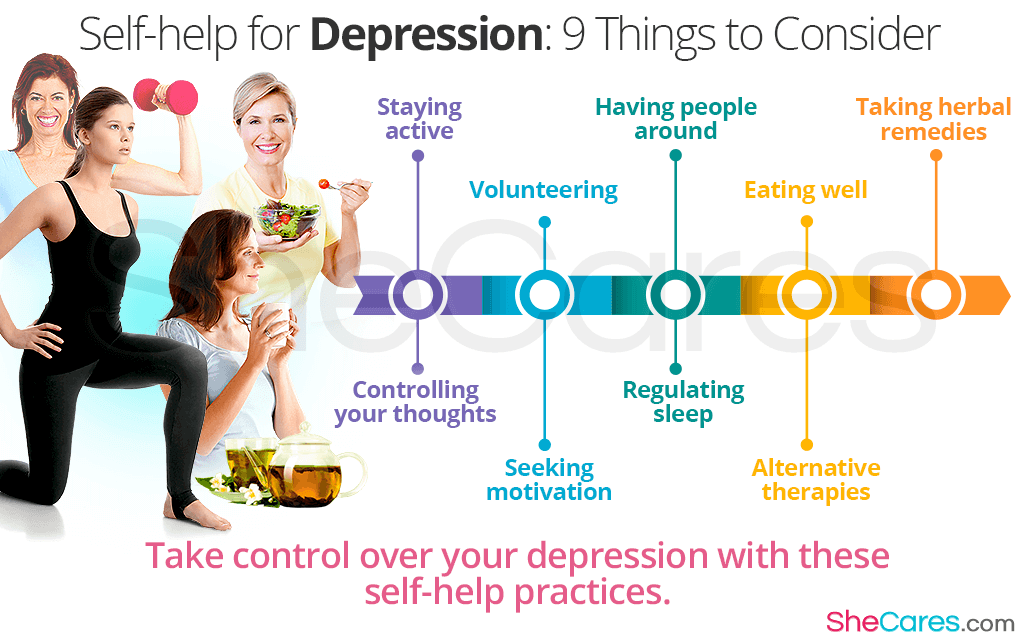Depression makes women feel unmotivated. It often turns their world upside down, disrupts their daily routines, and makes them feel that they lost control over their life. However, some women, who decided to take an active role in coping with their depression, have found relief in various self-help strategies. Implementing them does not come easily when you are depressed, but even a small step towards re-gaining control and rebuilding your life can initiate recovery. Some of the most common self-help practices for depression include:
Staying active
Many women suffering from depression have low energy and feel fatigue, but you can start with something as small as taking a walk around the block. Plan your day ahead and find excuses to get dressed, leave your home, and get some sunlight. Finding a new hobby, enrolling in cooking or painting classes, or learning yoga are good ways to be active and fill your mind with something constructive.
Volunteering
There is something powerful and liberating about helping the less fortunate ones. Volunteering at an orphanage, assisting the homeless, or spending some time cuddling dogs or cats at the shelter can help you distance yourself from what makes you unhappy and also make you feel needed and important.
Having People Around
Depressed women have a tendency to isolate themselves from people, but a strong family and friends' support is essential to overcoming your depression. Try not to withdraw from others and make sure you always have someone to talk to and look after you. Joining a local support group might also be helpful.
Controlling Your Thoughts
The thoughts galloping through your mind often bring chaos and uncertainty, but practicing mindfulness can help you approach these negative thoughts more calmly. Making a daily habit of listing three things you are grateful for can also bring more light and openness into your perception.
Eating Well
Women suffering from depression frequently experience appetite changes, leading to weight loss or gain. To prevent that, do not skip any meals, and eat small portions frequently throughout the day. Try to avoid the typical comfort foods, such as sweets or fast-food, and choose brain-healthy products rich in vitamin B, C, E, omega-3 fatty acids, like beans, citrus fruit, seeds, nuts, or fish.
Regulating Sleep
Depression often causes insomnia or oversleeping. Your ability to handle what the day brings is much lower when you do not sleep well, so try to establish a firm sleeping routine and stick to it. Calm your mind with meditation or breathing techniques, avoid watching television before bedtime, or put some music or ocean sounds in the background.
Seeking Motivation
Some women get inspired by reading self-help books or listening to motivational speakers. Others find strength in faith and the support of their religious or spiritual communities. Find what gives you a boost of energy and reassurance that you can overcome your depression.
Taking Herbal Remedies
Several herbs have been found to possess anti-depressant properties, for example, by increasing serotonin levels. St. John's wort, saffron, or curcumin supplements show promise in treating depression, but their use should always be first consulted with your doctor.
Alternative Therapies
Science has shown that acupuncture, including electro-acupuncture, can be effective in treating depression. Aromatherapy, particularly with the essential oils of bergamot, lavender, chamomile, or ylang ylang, has shown to reduce depression, lower stress and negativity, and enhance mood.
Whether you complement the conventional depression treatments with these self-help practices or use them on their own, it is important to keep your doctor informed about your depression. He will help you better monitor its progression and make sure it is the safest and most optimal treatment for your condition.
